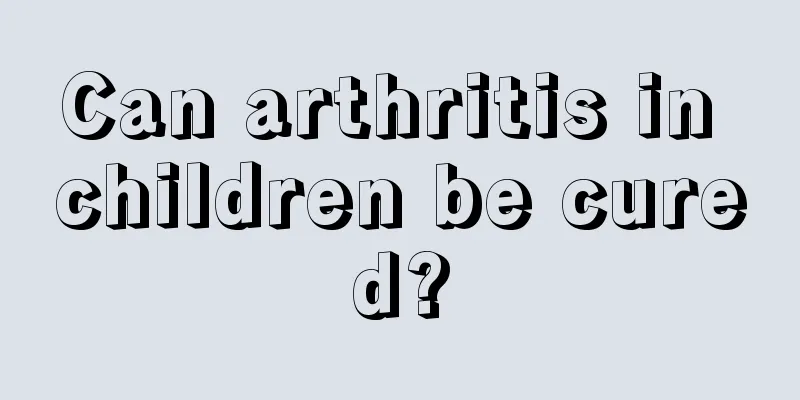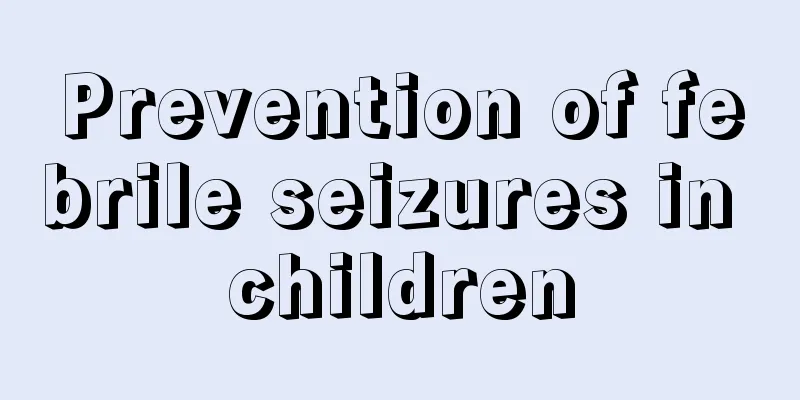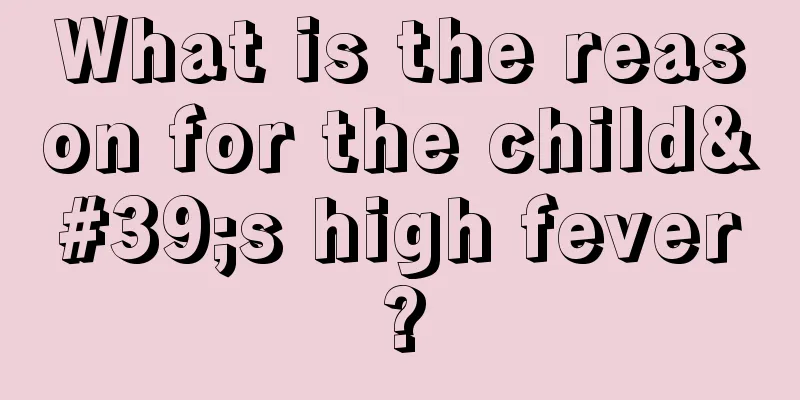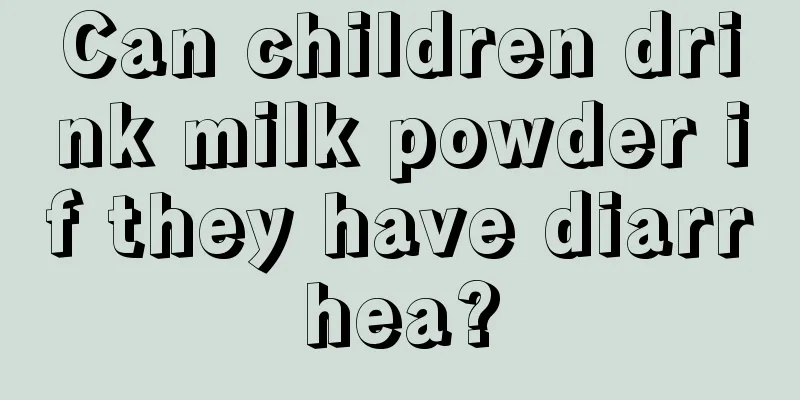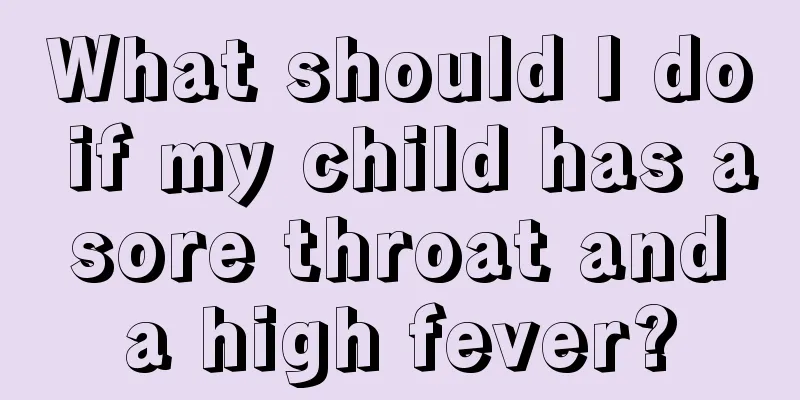What is the reason why children have fever and vomiting?

|
Fever in children is very harmful. If accompanied by vomiting, the situation will be more serious. The child may become dehydrated. Therefore, children should be encouraged to drink more water and then closely observe their body temperature. Parents should learn some physical cooling methods, find the cause of the disease and actively treat it. The most common causes are as follows. First, what is the reason for children's fever and vomiting? 1. Gastrointestinal cold. When children's respiratory tract is infected by a virus, they will experience nausea and vomiting, and in severe cases, they will be accompanied by diarrhea, abdominal pain, etc. 2. Throat irritation. After respiratory tract infection, the throat is infected, with redness, swelling, secretions, and coughing. If vomiting occurs after coughing, it should be considered to be caused by irritation of the throat. 3. Fever causes intestinal dysfunction. After fever, gastrointestinal motility slows down, the effect of digestive enzymes decreases, the baby suffers from indigestion, abdominal bloating, and is prone to vomiting. What mothers need to pay attention to is: if the child does not have a high fever, do not rush to reduce the fever immediately, otherwise it will hide the real cause of the disease. If you experience cramps, unconsciousness, severe vomiting, diarrhea, difficulty breathing, abdominal tenderness and hardness, headache, stiff neck, etc., you may have other complications and must seek medical attention immediately. Second, the symptoms of children's cold and fever Cold is a common disease in children. Generally, 1 to 3 days after infection, children will experience nasal congestion, sneezing, runny nose, throat discomfort, mild cough, fever, etc. The fever varies. Severe cases may cause chills, high fever, headache, poor appetite, general fatigue, etc. Theoretically, the cold is a self-limiting disease. Even without taking medicine, most children can recover on their own in about a week as long as they drink plenty of water and receive good care. However, babies have a weaker tolerance to illness and their condition changes rapidly, so even a mild cold should not be taken lightly. The treatment for colds and fevers is mainly symptomatic, and drugs containing ingredients such as acetaminophen are commonly used. Acetaminophen has antipyretic and analgesic effects; amantadine can resist the "subtype A" influenza virus and inhibit viral reproduction; caffeine is a central nervous system stimulant that can enhance the antipyretic and analgesic effects of acetaminophen. It is suitable for relieving symptoms such as fever, headache, sore limbs, sneezing, runny nose, nasal congestion, and sore throat caused by the common cold and influenza in children. Third, care methods for children with fever and vomiting 1. Replenish water. If you feel chilly and shivering, you can add a little more clothes. If not, reduce the amount of clothes and quilts to let the heat evaporate naturally. Fever and vomiting can easily lead to dehydration. You can provide water in small amounts and multiple times depending on the baby's condition. 2. Bath with warm water. Wipe the whole body with water slightly higher than body temperature or soak it or use an ice pillow, but do not wipe it with alcohol, because it is more irritating and causes shivering, blood vessel constriction, and the body temperature will rise. 3. Eat a light diet. When vomiting is severe, do not rush to give too much food. It is best to feed water first. After the vomiting improves, give light, easily digestible liquid food, and then transition to a normal diet. 3. When the abdomen is bloated, the mother needs to help the baby exercise appropriately, change the baby's sleeping position, or hold him up and pat his back to help expel gas. 4. Take medication as directed by your doctor. Antipyretic drugs can be given according to the doctor's instructions. Do not shorten the medication time or increase the dosage without authorization just because the fever has not subsided. 5. Seek medical attention if the condition is serious. If you experience cramps, unconsciousness, severe vomiting, diarrhea, difficulty breathing, abdominal tenderness and hardness, headache, stiff neck, etc., you may have other complications and must seek medical attention immediately. |
<<: What medicine should children take for gastrointestinal cold
>>: How to treat children’s nasal congestion quickly?
Recommend
Why does my baby drool when he has a fever?
As children grow up, especially when they are sti...
Is premature infant apnea serious?
Respiratory apnea is a common phenomenon among pr...
There are 6 ways to diagnose polio
What are the diagnostic methods for polio? This h...
What disease causes red and swollen upper eyelids in children?
Eyelids are very important to everyone. Many peop...
What to do if children have tooth decay and toothache
Children's health is of particular concern to...
Is it caused by brain hypoxia when the baby stretches hard?
If a mother encounters difficulties or other symp...
Fluid intake per hour for children
Children often suffer from symptoms of cold and f...
How to treat a child with fever and convulsions? These are the methods!
Young children are very fragile. Once they have a...
Treatment of patent foramen ovale in infants
Nowadays, cases of patent foramen ovale in babies...
Tips for cleaning earwax for two-year-old babies
A two-year-old baby can already walk, and at this...
How to correct crooked feet in newborns
Some newborns have crooked feet after birth. This...
Why am I so thirsty while breastfeeding?
Normally, when we are thirsty, it is okay to drin...
What are the symptoms of intussusception in children?
Intussusception is a very common acute abdominal ...
Why does the baby sneeze?
Every baby will become the focus of every family,...
How to deal with being stung by a sugar baby
Tangbao is the name from a TV series. This insect...

